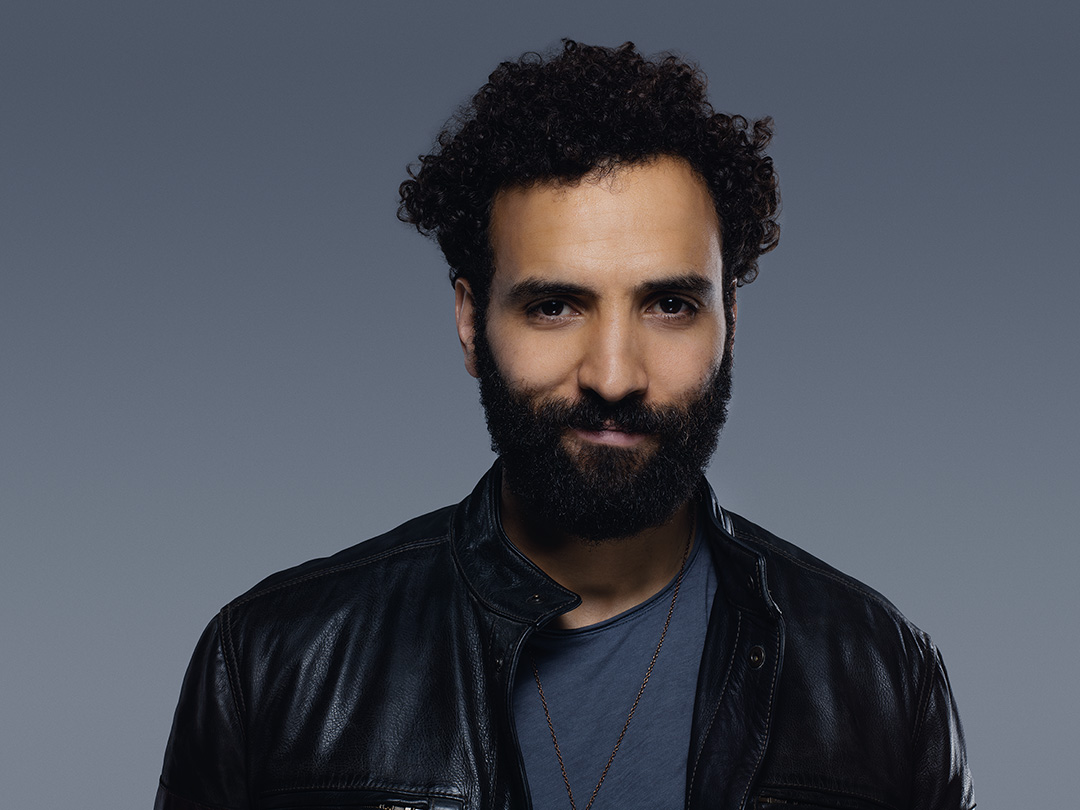“Often when people have seen me in a show and then meet me, they are surprised that I speak fluent English,” Fayssal Bazzi says in his strong Australian accent. “I take it more as a compliment than a racial thing. As an actor, if my performance and accent is that convincing, then that is a good thing, right?” Right.
We are talking to the Aussie actor about his role in the Stateless, a six-part series that tells the story of four people whose lives intertwine at an immigration detention centre for asylum seekers. Bazzi plays one of them – Ameer, an Afghani teacher attempting to help his family escape the Taliban and start afresh in Australia.
“The thing that drew me to Ameer was that the character was real. It wasn’t just a trope written in to pull on heart strings,” he says. “On the set, a lot of the extras and background artists used in the detention centre scenes were actual refugees and asylum seekers, who at one stage had been in similar centres in both Australia and around the world. Hearing their stories, brought home how common it was, and it felt important to help put a human face on the refugee crisis.”
Created and produced by Cate Blanchett, the critical response to Stateless – which is available to stream on Netflix – has been overwhelmingly positive, and a timely reminder that the on-going humanitarian issue of refugees and asylum seekers is not getting any better.
Although Bazzi has played roles based on Middle Eastern characters before – notably his award-winning turn as the Syrian protagonist in The Merger – he has spent much of his 17-year career trying to avoid being type-cast.
“There is still a tendency for people with a Middle Eastern appearance to be portrayed as bad guys,” says Bazzi, who was raised in Australia to Lebanese-Syrian parents. “Now, I have no issues with playing a bad guy – in fact I enjoy it – but if roles always bring down people who look like me then I don’t believe it is in my, or cinema’s, best interest.”
It is not that Bazzi wants roles where ethnic-Arabs are always portrayed as good guys or people who should be pitied either, for him it is a matter of actors and characters in a variety of roles rather than to match a preconceived agenda. “I want to be part of the solution, and not the problem.”

It is steadfast principles such as those which almost lead to Bazzi’s casting as Ameer not happening. He initially turned the role down with concerns that he wasn’t a native Dari speaker, and only reconsidered after he insisted that the show’s casting agents had actively auditioned actual Afghan actors for the role. “All I asked was that the decision came down to acting ability rather than anything else,” he says.
Reassured that was the case, Bazzi set about learning Dari, and the dialect that would best correlate with his character. “I won’t lie and tell you that I can speak the language now,” he laughs, “but thanks to a lot of coaching, I know the lines I had to say and that’s it!”
For half of the series Ameer speaks English, and he encourages his family to do so as well. “I actually took a lot of that from when my family first moved to Australia when I was three years old,” says Bazzi. “My parents wanting me to speak English constantly so to give me the best opportunity to fit in. Ameer does so because he wanted his family to get used to speaking in English both as a way to fit in, but also as a way to help camouflage themselves.”
Being able to draw on a real life experience is a valuable tool for an actor, and a lot of Bazzi’s career choices have been dictated by his multi-cultural background growing up in a country that is still battles with some very difficult narratives when it comes to race and culture.
“I see myself as an Australian with Lebanese and Syrian culture,” he explains. “But because of that I’ve never really felt part of the Australian community or part of the Lebanese-Syrian community, so I’ve always had to make my own path. In a deeper way, I think it is important for me to push myself to play a variety of roles because I am still trying to work out who I am. I connect to too many things because I have so much culture inside me.”
Stateless is available on Netflix now
Esquire now has a newsletter – sign up to get it sent straight to your inbox.
Want up-to-the-minute entertainment news and features? Just hit ‘Like’ on our Esquire Facebook page and ‘Follow’ on our @esquiremiddleeast Instagram and Twitter account.




